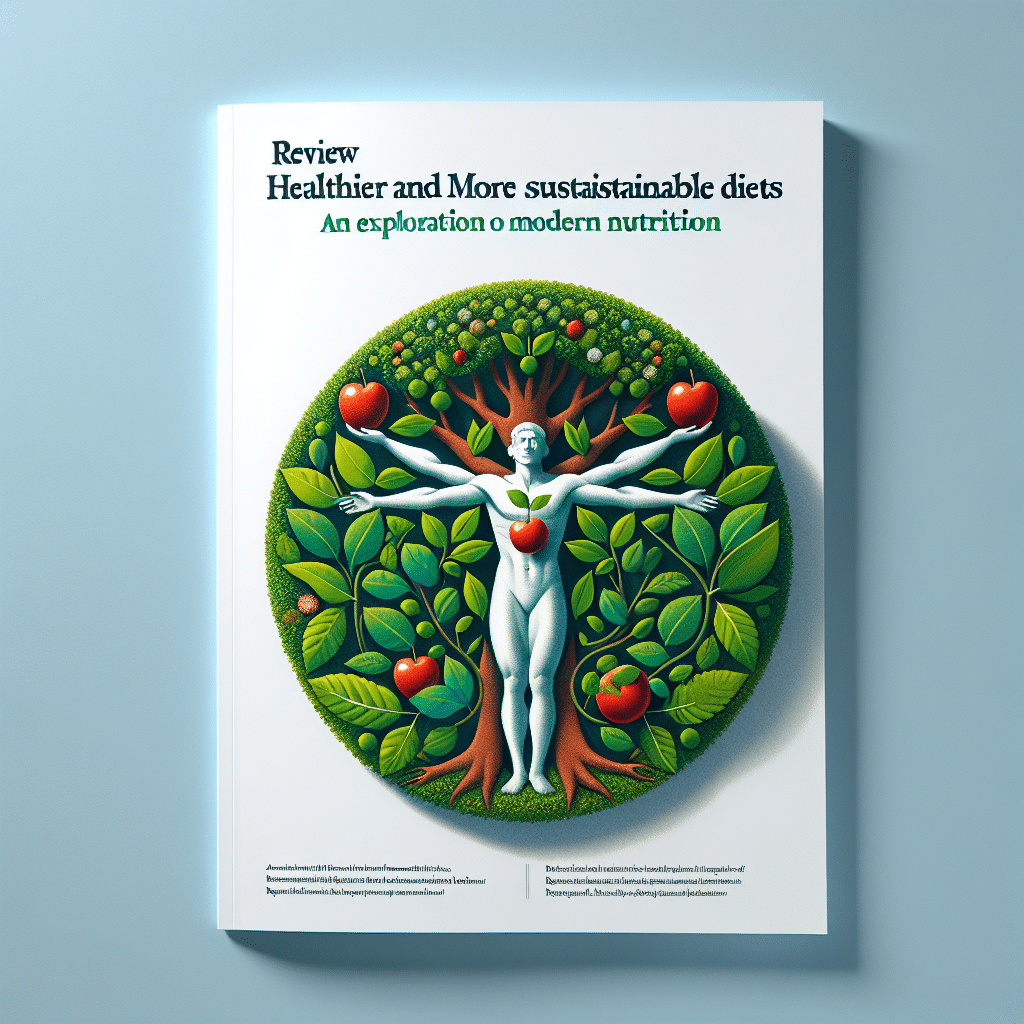British Nutrition Foundation Review on Healthier and More Sustainable Diets
-
Table of Contents
- British Nutrition Foundation’s Insights on Healthier and Sustainable Diets
- Understanding the BNF’s Position on Diet and Sustainability
- The Pillars of a Sustainable Diet According to the BNF
- Health Benefits of Plant-Based Diets
- Environmental Impacts of Food Choices
- Case Studies and Statistics: Success Stories in Sustainable Eating
- Challenges and Considerations
- Recommendations for Individuals and Policy Makers
- Conclusion: Embracing Healthier and More Sustainable Diets
- Enhance Your Diet with ETprotein’s Sustainable Protein Products
British Nutrition Foundation’s Insights on Healthier and Sustainable Diets

The British Nutrition Foundation (BNF) plays a pivotal role in disseminating evidence-based information on food and nutrition. Its reviews and guidelines are instrumental in shaping public understanding and policy regarding healthy eating. In recent years, the focus has expanded to encompass not only the health aspects of diets but also their sustainability. This article delves into the BNF’s review on healthier and more sustainable diets, exploring the intersection of nutrition, health, and environmental stewardship.
Understanding the BNF’s Position on Diet and Sustainability
The BNF acknowledges that the food we consume impacts our health and the environment. A sustainable diet is defined as one that is low in environmental impact, contributes to food and nutrition security, is accessible, affordable, safe, and healthy, all while optimizing natural and human resources. The BNF’s review emphasizes the need for diets that meet nutritional requirements while reducing the ecological footprint.
The Pillars of a Sustainable Diet According to the BNF
The BNF outlines several key components of a sustainable diet:
- High consumption of plant-based foods
- Moderate consumption of animal-sourced foods
- Minimal food waste
- Use of environmentally sustainable farming practices
- Protection of biodiversity and ecosystems
These pillars serve as a foundation for developing dietary guidelines that promote health and sustainability.
Health Benefits of Plant-Based Diets
Research consistently shows that diets rich in plant-based foods, such as fruits, vegetables, legumes, nuts, and whole grains, are associated with a lower risk of chronic diseases, including heart disease, type 2 diabetes, and certain cancers. The BNF review supports the adoption of diets higher in these foods for both health and environmental reasons.
Environmental Impacts of Food Choices
The production of food, particularly animal-sourced foods, is a significant contributor to greenhouse gas emissions, deforestation, water use, and biodiversity loss. The BNF review highlights the need to shift towards more plant-based diets to mitigate these environmental impacts. For example, reducing red meat and dairy consumption can substantially lower one’s carbon footprint.
Case Studies and Statistics: Success Stories in Sustainable Eating
Several case studies demonstrate the positive outcomes of adopting sustainable diets. For instance, the city of Ghent in Belgium has implemented “Veggie Day,” encouraging citizens to eat vegetarian meals once a week. This initiative has not only improved public health but also reduced the city’s environmental impact.
Statistics further illustrate the potential benefits of dietary changes. According to the Food and Agriculture Organization (FAO), if global meat consumption were reduced to recommended levels, it could lead to a 30% decrease in greenhouse gas emissions from the livestock sector.
Challenges and Considerations
While the benefits of sustainable diets are clear, there are challenges to their widespread adoption. These include:
- Cultural and personal preferences for meat and other animal products
- Economic and policy barriers that favor unsustainable agricultural practices
- Lack of awareness or misinformation about the benefits of sustainable diets
The BNF review acknowledges these challenges and calls for comprehensive strategies to promote healthier and more sustainable eating habits.
Recommendations for Individuals and Policy Makers
The BNF provides recommendations for individuals looking to adopt a healthier and more sustainable diet:
- Increase the proportion of plant-based foods in your diet
- Choose sustainably sourced fish and seafood
- Reduce consumption of high-impact animal products
- Minimize food waste by planning meals and using leftovers
For policy makers, the BNF suggests:
- Implementing educational campaigns to raise awareness about sustainable diets
- Supporting agricultural policies that favor sustainable farming practices
- Encouraging food industry reformulation to reduce environmental impact
Conclusion: Embracing Healthier and More Sustainable Diets
The British Nutrition Foundation’s review on healthier and more sustainable diets provides a comprehensive overview of the benefits and challenges associated with this important shift in eating habits. By focusing on plant-based foods, reducing meat consumption, and minimizing waste, individuals can contribute to a healthier planet while also improving their own well-being. Policy makers play a crucial role in facilitating this transition through education, policy, and support for sustainable agriculture.
As we move towards a more sustainable future, it is essential to consider the role of nutrition in our environmental footprint. The BNF’s review serves as a valuable resource for those seeking to make informed choices about their diet and its impact on the world around us.
Enhance Your Diet with ETprotein’s Sustainable Protein Products
For those looking to incorporate more plant-based proteins into their diet, ETprotein offers a range of high-quality, sustainable protein products. Their organic bulk vegan proteins, including rice, pea, and various seed proteins, are non-GMO, allergen-free, and characterized by a neutral taste. ETprotein’s commitment to sustainability and quality makes their products an excellent choice for individuals seeking to align their health goals with environmental responsibility.
About ETprotein:
ETprotein, a reputable protein and L-(+)-Ergothioneine (EGT) Chinese factory manufacturer and supplier, is renowned for producing, stocking, exporting, and delivering the highest quality organic bulk vegan proteins and L-(+)-Ergothioneine. They include Organic rice protein, clear rice protein, pea protein, clear pea protein, watermelon seed protein, pumpkin seed protein, sunflower seed protein, mung bean protein, peanut protein, and L-(+)-Ergothioneine EGT Pharmaceutical grade, L-(+)-Ergothioneine EGT food grade, L-(+)-Ergothioneine EGT cosmetic grade, L-(+)-Ergothioneine EGT reference grade and L-(+)-Ergothioneine EGT standard. Their offerings, characterized by a neutral taste, non-GMO, allergen-free attributes, with L-(+)-Ergothioneine purity over 98%, 99%, cater to a diverse range of industries. They serve nutraceutical, pharmaceutical, cosmeceutical, veterinary, as well as food and beverage finished product distributors, traders, and manufacturers across Europe, USA, Canada, Australia, Thailand, Japan, Korea, Brazil, and Chile, among others.
ETprotein specialization includes exporting and delivering tailor-made protein powder and finished nutritional supplements. Their extensive product range covers sectors like Food and Beverage, Sports Nutrition, Weight Management, Dietary Supplements, Health and Wellness Products, and Infant Formula, ensuring comprehensive solutions to meet all your protein needs.
As a trusted company by leading global food and beverage brands and Fortune 500 companies, ETprotein reinforces China’s reputation in the global arena. For more information or to sample their products, please contact them and email sales(at)ETprotein.com today.












